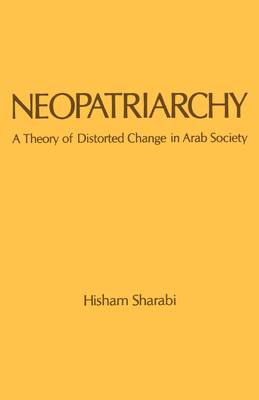
- Afhalen na 1 uur in een winkel met voorraad
- Gratis thuislevering in België vanaf € 30
- Ruim aanbod met 7 miljoen producten
- Afhalen na 1 uur in een winkel met voorraad
- Gratis thuislevering in België vanaf € 30
- Ruim aanbod met 7 miljoen producten
Zoeken
€ 166,45
+ 332 punten
Omschrijving
Focusing on the region of the Arab world--comprising some two hundred million people and twenty-one sovereign states extending from the Atlantic to the Persian Gulf--this book develops a theory of social change that demystifies the setbacks this region has experienced on the road to transformation. Professor Sharabi pinpoints economic, political, social, and cultural changes in the last century that led the Arab world, as well as other developing countries, not to modernity but to neopatriarchy--a modernized form of patriarchy. He shows how authentic change was blocked and distorted forms and practices subsequently came to dominate all aspects of social existence and activity--among them militant religious fundamentalism, an ideology symptomatic of neopatriarchal culture. Presenting itself as the only valid option, Muslim fundamentalism now confronts the elements calling for secularism and democracy in a bitter battle whose outcome is likely to determine the future of the Arab world as well as that of other Muslim societies in Africa and Asia.
Specificaties
Betrokkenen
- Auteur(s):
- Uitgeverij:
Inhoud
- Aantal bladzijden:
- 224
- Taal:
- Engels
Eigenschappen
- Productcode (EAN):
- 9780195079135
- Verschijningsdatum:
- 29/10/1992
- Uitvoering:
- Paperback
- Formaat:
- Trade paperback (VS)
- Afmetingen:
- 139 mm x 216 mm
- Gewicht:
- 294 g

Alleen bij Standaard Boekhandel
+ 332 punten op je klantenkaart van Standaard Boekhandel
Beoordelingen
We publiceren alleen reviews die voldoen aan de voorwaarden voor reviews. Bekijk onze voorwaarden voor reviews.











